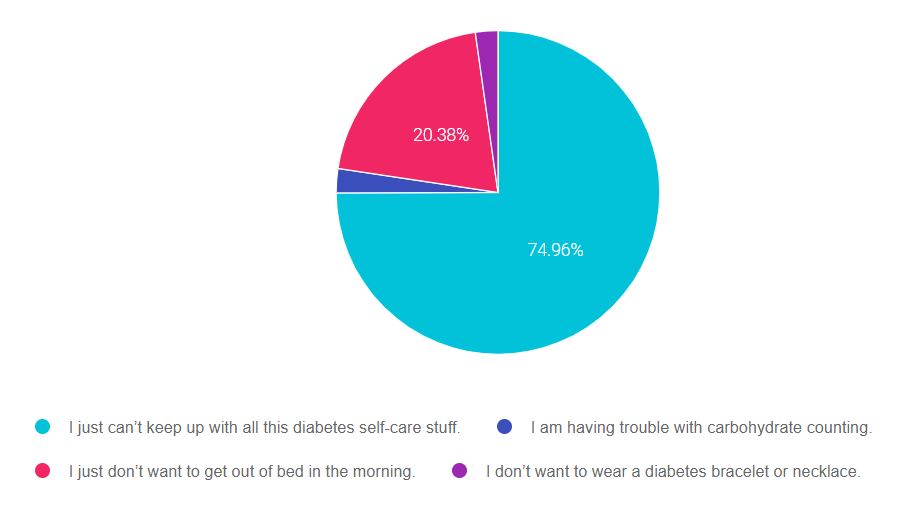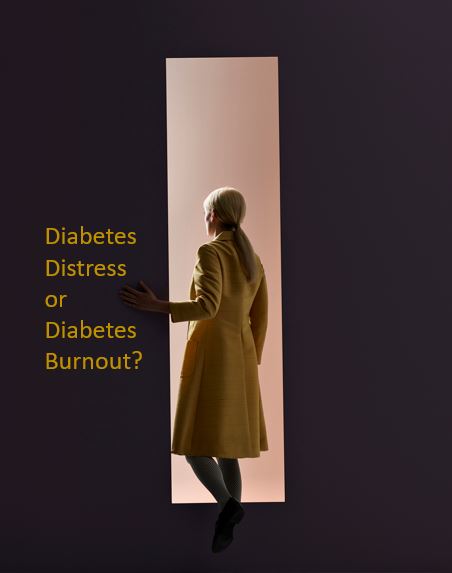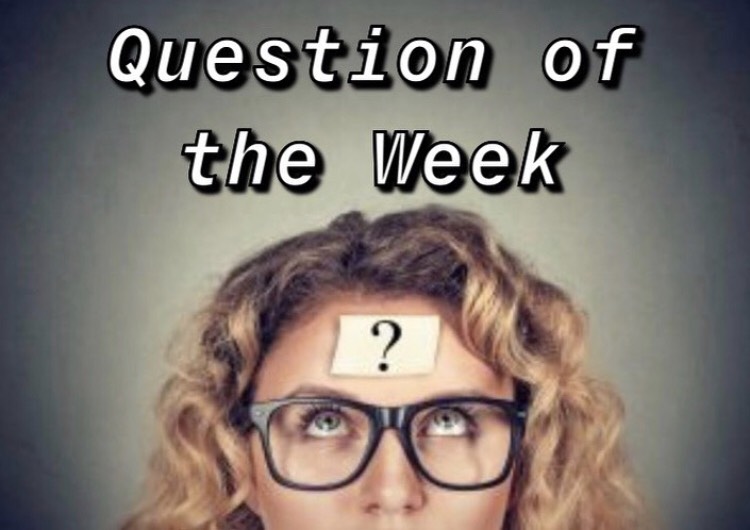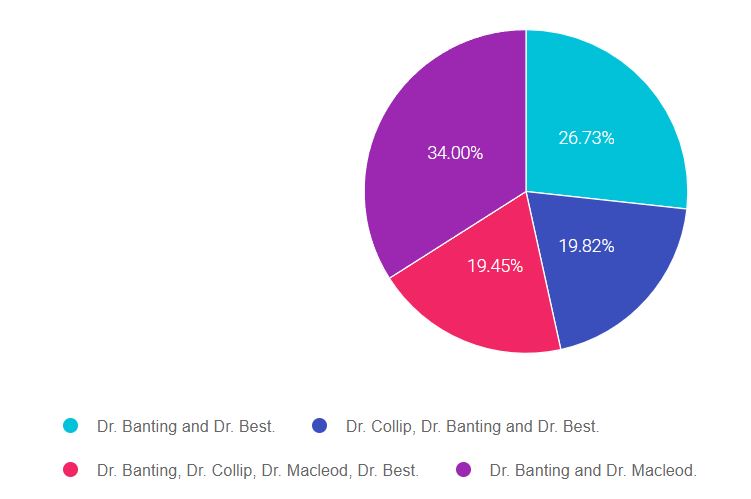December eNews | Diabetes Distress & Holidays? New Handout with 12 Reframes to Help

December eNews | Diabetes Distress & Holidays? New Handout with 12 Reframes to Help
Happy December
Greetings to my wonderful health care colleagues. Thank you for all the love and care you have provided this year. I know you touch the lives and hearts of many people who boldly try their best to self-manage their diabetes and I am grateful for you!
As I am sure you have witnessed over time, holidays can amplify stress levels for people living with diabetes. With that in mind, we think this is a perfect time to provide you with some tools to address diabetes distress and burnout during the holidays and in preparation for those New Year resolutions.
Approximately 30% of people with diabetes experience distress at any given time. In addition, many people may be struggling with diabetes burnout.
As health care providers, how do we know if someone is in diabetes distress or is burning out on their self-care?
We might connect with these individuals in a hyperglycemic or hypoglycemic crisis. Maybe they are not showing up for their appointments. These individuals might be mistakenly labeled as “non-adherent” or it may be wrongly assumed that they just don’t care. However, we are compelled to reach out to them and provide a compassionate check-in of their emotional health and state of well-being.
Diabetes specialists help identify and address diabetes distress to improve quality of life and outcomes.
Read more to learn the definition and signs of diabetes distress and burnout and what action to take. Download our FREE Handouts on Surviving the Holidays and Ideas to Deal with Diabetes Distress.
We hope you can join us for our Annual Webinar Updates starting in December. We have over 50 courses to update, so Coach Bev likes to get an early start (see schedule below).
Wishing you health and moments of awe as we move toward 2022.
Coach Beverly, Bryanna, and Jackson
Click here to read our full December 2021 newsletter.
Featured Topics
- How to Identify Diabetes Distress
- 12 Ways to Help Diabetes Distress
- Coach Bev Receives Statewide World
- Question of the Week
- Rationale of the Week
Upcoming Webinars
- CDCES vs. BC-ADM | Dec 9th
- Hyperglycemic Crisis | Dec 15th
- Test Taking Toolkit | Dec 16th
- Assessing & Promoting Well-Being | Dec 9th
- Diabetes Fundamentals | Begins Jan 11th
- ADA Standards of Care | Feb 3rd
- Bootcamp | Begins Feb 8th
Featured Items
- CDCES Prep Bundle + Review Guide
- Free Resources
Test Taking Practice Exam Toolkit Webinar
20 Sample Practice Questions
Join us live June 30, 2022, for live webinar 2022 updates
You are invited to join Coach Beverly for this FREE Webinar. And, if you want to have access to an additional 220+ sample practice online questions, you can purchase the complete Test Taking Toolkit.
For many of us, taking the certification exam is a nerve-wracking process.
During this webinar, Coach Beverly will help you transform your nervousness into focused energy that will help you succeed. She will provide test-taking tips based on her experience taking the certification exam six times.
2 Ways to Join Test Taking Webinar
Watch Webinar for FREE
This includes a review of 20 sample test questions with test-taking strategies. This does not include access to the recorded webinar or the practice questions.
This includes access to the recorded version of this webinar on your Online University Student Portal. Plus, the Test Taking Toolkit provides you with over 220 sample online practice questions, simulating the exam experience. A perfect way to assess your knowledge and create a focused study plan, while increasing your test-taking confidence.
Don’t worry if you can’t make it live.
Your registration guarantees access to the recorded version.
Sign up for Diabetes Blog Bytes – we post one daily Blog Byte from Monday to Friday. And of course, Tuesday is our Question of the Week. It’s Informative and FREE! Sign up below!
[yikes-mailchimp form=”1″]Accreditation: Diabetes Education Services is an approved provider by the California Board of Registered Nursing, Provider 12640, and Commission on Dietetic Registration (CDR), Provider DI002. Since these programs are approved by the CDR it satisfies the CE requirements for the CDCES regardless of your profession.*
The use of DES products does not guarantee the successful passage of the CDCES exam. CBDCE does not endorse any preparatory or review materials for the CDCES exam, except for those published by CBDCE.
Rationale of the Week | Who is struggling with Diabetes Distress?

Our November 30th Question of the week quizzed test takers on Diabetes Distress. 75% of respondents, chose the best answer, which is awesome. Providing person centered care and assessing for diabetes distress are both critically important knowledge points for clinical practice and also for the certification exams.
Before we start though, if you don’t want any spoilers and haven’t tried the question yet, you can answer below: Answer Question
Question:
About 30% of people living with type 1 diabetes experience diabetes distress.
Which of the following statements reflects someone struggling with diabetes distress?
Answer Choices:
- I just can’t keep up with all this diabetes self-care stuff.
- I am having trouble with carbohydrate counting.
- I just don’t want to get out of bed in the morning.
- I don’t want to wear a diabetes bracelet or necklace.

As shown above, the most common choice was option 3, the second most common answer was option 2, then option 4, and finally option 1.
Getting to the Best Answer
Answer 1 is correct. 74.96% chose this answer, “I just can’t keep up with all this diabetes self-care stuff.” Yes, GREAT JOB. When diabetes self-care all starts feeling like it’s too much or like it’s out of control, that’s when we might say a person is experiencing diabetes distress. Regimen distress is the most common area that people with diabetes come up against. Please see our blog on How to Identify Diabetes Distress and Burnout for information on how to help with diabetes distress.
Answer 2 is incorrect. 2.42% of you chose this answer, “I am having trouble with carbohydrate counting.” This comment indicates a common knowledge gap that can be addressed through providing resources and carb counting information and does not indicate distress.
Answer 3 is incorrect. 20.38% of respondents chose this answer, “I just don’t want to get out of bed in the morning.” If a person with diabetes makes this statement, we would be concerned that they are grappling with more than distress. This comment would prompt us to screen for depression. Please see this link to download the Diabetes Distress Scale and other psychosocial screening tools.
Finally, Answer 4 is incorrect. 2.25% chose this answer, “I don’t want to wear a diabetes bracelet or necklace.” Although we recommend that people taking insulin wear diabetes identification in case of emergency, it is not mandatory and they can chose not to wear one. This comment alone does not indicate diabetes distress.
We hope you appreciate this week’s rationale! Thank you so much for taking the time to answer our Question of the Week and participate in this fun learning activity!
Please see our blog on How to Identify Diabetes Distress and Burnout for more information.
Please see this link to download the Diabetes Distress Scale and other psychosocial screening tools.
Want to learn more about this topic?
Enroll in our Level 2 | Assessing and Promoting Well-Being: From Population Health to a Person-Centered Approach Standards | 1.5 CEs
Annual Update Airs Live on December 21st at 11:30 am PST

This presentation will include the latest information on Social Determinants of health, assessment strategies, and approaches. We will explore the psychosocial issues that can discourage individuals from adopting healthier behaviors and provides strategies to identify and overcome these barriers. Life studies are used to apply theory to real-life situations. A great course for anyone in the field of diabetes education or for those looking for a new perspective on assessment and coping strategies.
Objectives:
- State strategies to assess and address social determinants of health
- Discuss health care delivery systems using a person-centered approach
- List screening tools that can help detect distress, depression, trauma, and cognitive decline
- Describe psycho-social and emotional barriers to diabetes self-management
- Provide strategies for healthcare professionals to identify and overcome barriers to self-care
Intended Audience: A great course for healthcare professionals in the field of diabetes education looking for a straightforward explanation of identification and treatment of hyperglycemic crises.
Instructor: Beverly Thomassian RN, MPH, CDCES, BC-ADM is a working educator and a nationally recognized diabetes expert.
Enroll in our entire Level 2 – Standards of Care to join us for the below 2022 Live Webinar Updates. All courses air at 11:30 a.m. (PST)
- December 15, 2021 – Hyperglycemic Crises, DKA & HHS Standards | 1.0 CE
- December 21, 2021 – Assessing and Promoting Well-Being: From Population Health to a Person-Centered Approach Standards | 1.5 CEs
- February 3, 2022 – ADA Standards of Care | 2.0 CEs
- March 24, 2022 – Meds Management for Type 2 – 1.5 CEs
- March 29, 2022 – Lower Extremity Assessment 1.5 CEs
- April 26, 2022 – Microvascular Complications, Eye, Kidney Nerve Disease 1.5 CEs
- April 28, 2022 – Critical Assessment of Diabetes Patient 2.0 CEs
- May 10, 2022 – Cardiovascular Disease and Diabetes Standards 1.5 CEs
- May 12, 2022 – Older Adults and DIabetes 1.5 CEs
- May 17, 2022 – Tots to Teens – Diabetes Standards 1.5 CEs
- May 19, 2022 – Pregnancy and Diabetes 1.5 CEs
- May 26, 2022 – Hospital and Hyperglycemia 1.5 CEs
- July 21, 2022 – Setting up a Successful Diabetes Program 1.5 CEs
All hours earned count toward your CDCES Accreditation Information
Sign up for Diabetes Blog Bytes – we post one daily Blog Byte from Monday to Friday. And of course, Tuesday is our Question of the Week. It’s Informative and FREE! Sign up below!
[yikes-mailchimp form=”1″]The use of DES products does not guarantee the successful passage of the CDCES exam. CBDCE does not endorse any preparatory or review materials for the CDCES exam, except for those published by CBDCE.
How to Identify Diabetes Distress or Burnout – Interview with Coach Beverly
What is Diabetes Distress?

At some point, almost everyone with diabetes will experience a degree of diabetes distress. It’s expected and completely understandable, especially for those on intensive medication and insulin regimens. Having diabetes is not just about checking blood sugars, counting carbs, taking medications, and giving insulin. People also have an emotional relationship with their diabetes. These feelings around their diabetes can fluctuate throughout their lifetime.
Sometimes a person might have a great day, when their blood sugars on mostly on target, they don’t miss any of their medications and insulin, plus they made it to the gym. But the next day or week or month may feel like a complete mess, with blood sugars all over the place. These blood sugar swings are due to a variety of different reasons, many of which may be out of the person’s control.
Regardless of where a person is with their diabetes self-care, the emotions that bubble up, need to be acknowledged and recognized both by the person with diabetes and the health care provider.
When diabetes self-care all starts feeling like it’s too much or like it’s out of control, that’s when we might say a person is experiencing diabetes distress.
You can determine if a person is experiencing diabetes distress by observing self-care behaviors and asking questions. Or you can use a standardized assessment tool to determine how much distress a person is experiencing in four different areas of diabetes self-care. Please see this link to download the Diabetes Distress Scale and other psychosocial screening tools.
The four areas of Diabetes Distress include:
Emotional Distress – Feeling like they are not doing enough; like they are failing and out of control.
Physician-related distress – Provider doesn’t understand diabetes.
Interpersonal Distress – Friends and family don’t really get it, or are critical, or don’t want to hear about diabetes. Can often be co-associated with depression.
Regimen-related distress – all the daily stuff a person has to do to self-manage their diabetes. Regimen-related distress is the most common kind of diabetes distress, especially for those living with type 1 diabetes.
Health Care Professionals can take an active role in identifying Diabetes Distress
We can start by asking this question, “What is most driving you crazy about your diabetes right now?” or “How are you doing with your diabetes?” while listening carefully to their response and evaluating their degree of distress.
We can also look at self-care behaviors to identify distress:

- A person may not be giving bolus insulin before meals when they used to in the past
- They disconnect from their CGM for extended periods of time.
- A surprise elevation in their blood sugars
- Expressing feelings of anger, discouragement, or frustration.
- They may think that they are the only ones going through this, that everyone else with diabetes has it figured out, so what is wrong with them?
Sometimes diabetes distress can lead to burnout or be co-associated with burnout. Sometimes, it may be hard to tell the difference. Don’t worry about figuring out if it’s burnout or distress. What’s most important is to recognize that this person is having trouble coping and to provide active listening and help with problem-solving.
What is diabetes burnout?
Diabetes burnout is an emotional reaction that is usually more intense than diabetes distress. A person in the state of burnout is someone with diabetes who has grown tired of managing their condition, then simply ignores it for a period of time.
Sometimes I refer to burnout as taking a diabetes vacation.
This vacation might be a weekend trip, a week trip, or a long-term sabbatical. Diabetes burnout looks different for everyone. Diabetes burnout is a normal reaction to living with diabetes. I am not saying it is a good thing, or we want people to feel burned out. We want to recognize that managing diabetes is a lot of work and sometimes people just take breaks from diabetes self-management.
As health care providers, we can support people experiencing diabetes distress or burnout. According to Mark Heyman, PhD, CDCES, here is an approach he has found helpful.
- Ask how they are doing and listen for emotions or actions that indicated diabetes distress.
- Help them recognize there are 2 parts to it
- Emotional reaction – Feelings of being distressed or burned out. A person might be thinking, “If I ignore my diabetes for a while, it might go away or the distress might go away.”
- Behavioral reaction – when a person feels distressed or burned out, they might ignore the diabetes as a way to manage that stress.
- Recognize how they are feeling and reassure them that their reaction makes sense.
- Then explore if they could consider separating the emotion from the behavior.
- Yes, you feel burned out but can you still check blood sugars and give yourself insulin?”
- We can help people recognize the feeling of being burned out and encourage them to make adjustments to their self-care response, ie “I am going to manage my diabetes anyway, even though I am completely frustrated and burnt out.”
As health care professionals, we need to check in with people about their distress on a regular basis and provide support.
We need to reassure them that management of diabetes isn’t easy, but they are not alone. There are lots of other people with diabetes experiencing the same feelings.
We might say something like, “Managing diabetes is hard work, but we believe in your ability to make small changes to get to a safer place. You don’t have to move mountains; you just need to take a baby step.“
Let’s remind them, that having diabetes is like getting a job you didn’t ask for. You have to do the work of a body organ, a pancreas. that requires 24 hours a day of attention, without any pay or vacations. Sincerely focus on their successes, no matter how small, and reinforce our belief in their ability to move forward. We got this.
Special thanks for the Team from Quin for hosting this interview. To learn more about Quin, click here.
Want to learn more about this topic?
Enroll in our Level 2 | Assessing and Promoting Well-Being: From Population Health to a Person-Centered Approach Standards | 1.5 CEs
Annual Update Airs Live on December 21st at 11:30 am PST

This presentation will include the latest information on Social Determinants of health, assessment strategies, and approaches. We will explore the psychosocial issues that can discourage individuals from adopting healthier behaviors and provides strategies to identify and overcome these barriers. Life studies are used to apply theory to real-life situations. A great course for anyone in the field of diabetes education or for those looking for a new perspective on assessment and coping strategies.
Objectives:
- State strategies to assess and address social determinants of health
- Discuss health care delivery systems using a person-centered approach
- List screening tools that can help detect depression, trauma, and cognitive decline
- Describe psycho-social and emotional barriers to diabetes self-management
- Provide strategies for healthcare professionals to identify and overcome barriers to self-care
Intended Audience: A great course for healthcare professionals in the field of diabetes education looking for a straightforward explanation of identification and treatment of hyperglycemic crises.
Instructor: Beverly Thomassian RN, MPH, CDCES, BC-ADM is a working educator and a nationally recognized diabetes expert.
Enroll in our entire Level 2 – Standards of Care to join us for the below 2022 Live Webinar Updates. All courses air at 11:30 a.m. (PST)
- December 15, 2021 – Hyperglycemic Crises, DKA & HHS Standards | 1.0 CE
- December 21, 2021 – Assessing and Promoting Well-Being: From Population Health to a Person-Centered Approach Standards | 1.5 CEs
- February 3, 2022 – ADA Standards of Care | 2.0 CEs
- March 24, 2022 – Meds Management for Type 2 – 1.5 CEs
- March 29, 2022 – Lower Extremity Assessment 1.5 CEs
- April 26, 2022 – Microvascular Complications, Eye, Kidney Nerve Disease 1.5 CEs
- April 28, 2022 – Critical Assessment of Diabetes Patient 2.0 CEs
- May 10, 2022 – Cardiovascular Disease and Diabetes Standards 1.5 CEs
- May 12, 2022 – Older Adults and DIabetes 1.5 CEs
- May 17, 2022 – Tots to Teens – Diabetes Standards 1.5 CEs
- May 19, 2022 – Pregnancy and Diabetes 1.5 CEs
- May 26, 2022 – Hospital and Hyperglycemia 1.5 CEs
- July 21, 2022 – Setting up a Successful Diabetes Program 1.5 CEs
All hours earned count toward your CDCES Accreditation Information
Sign up for Diabetes Blog Bytes – we post one daily Blog Byte from Monday to Friday. And of course, Tuesday is our Question of the Week. It’s Informative and FREE! Sign up below!
[yikes-mailchimp form=”1″]The use of DES products does not guarantee the successful passage of the CDCES exam. CBDCE does not endorse any preparatory or review materials for the CDCES exam, except for those published by CBDCE.
Question of Week | What is the Truth about Hyperglycemic Crisis?

People with type 1 or type 2 diabetes can experience hyperglycemic crises.
Which of the following is true about Diabetes Ketoacidosis (DKA)?
- People with Latent Autoimmune Diabetes (LADA) are not at risk of DKA.
- DKA is associated with hyperkalemia and elevated pH.
- DKA can be managed with IV or Sub-Q insulin therapy.
- People with type 1 on SGLT-2s have lower risk of DKA than those with type 2.
Click Here to Test your Knowledge
Want to learn more about this topic?
Level 2 | Hyperglycemic Crises, DKA & HHS Standards | 1.0 CE
Annual Webinar Airs Live on December 15th at 11:30 am PST

This course discusses common causes of hyperglycemia crises. Topics include hyperglycemia secondary to medications and insulin deprivation. The difference and similarities between Diabetes Ketoacidosis and Hyperosmolar Hyperglycemic Syndrome are also covered. Treatment strategies for all situations are included.
Objectives:
- Common causes of hyperglycemic crises.
- The difference and similarities between DKA and HHS and treatment strategies
- Causes and treatment of hyperglycemic crises.
Intended Audience: A great course for healthcare professionals in the field of diabetes education looking for a straightforward explanation of identification and treatment of hyperglycemic crises.
Instructor: Beverly Thomassian RN, MPH, CDCES, BC-ADM is a working educator and a nationally recognized diabetes expert.
Enroll in our entire Level 2 – Standards of Care to join us for the below Annual Live Webinar Updates. All courses air at 11:30 a.m. (PST)
- December 15, 2021 – Hyperglycemic Crises, DKA & HHS Standards | 1.0 CE
- December 21, 2021 – Assessing and Promoting Well-Being: From Population Health to a Person-Centered Approach Standards | 1.5 CEs
- February 3, 2022 – ADA Standards of Care | 2.0 CEs
- March 24, 2022 – Meds Management for Type 2 – 1.5 CEs
- March 29, 2022 – Lower Extremity Assessment 1.5 CEs
- April 26, 2022 – Microvascular Complications, Eye, Kidney Nerve Disease 1.5 CEs
- April 28, 2022 – Critical Assessment of Diabetes Patient 2.0 CEs
- May 10, 2022 – Cardiovascular Disease and Diabetes Standards 1.5 CEs
- May 12, 2022 – Older Adults and DIabetes 1.5 CEs
- May 17, 2022 – Tots to Teens – Diabetes Standards 1.5 CEs
- May 19, 2022 – Pregnancy and Diabetes 1.5 CEs
- May 26, 2022 – Hospital and Hyperglycemia 1.5 CEs
- July 21, 2022 – Setting up a Successful Diabetes Program 1.5 CEs
All hours earned count toward your CDCES Accreditation Information
Sign up for Diabetes Blog Bytes – we post one daily Blog Byte from Monday to Friday. And of course, Tuesday is our Question of the Week. It’s Informative and FREE! Sign up below!
[yikes-mailchimp form=”1″]The use of DES products does not guarantee the successful passage of the CDCES exam. CBDCE does not endorse any preparatory or review materials for the CDCES exam, except for those published by CBDCE.
Don’t Miss Out! Annual Webinar Updates with Coach Beverly
Level 2 | Hyperglycemic Crises, DKA & HHS Standards | 1.0 CE
Annual Webinar Airs Live on December 15th at 11:30 am PST
This course discusses common causes of hyperglycemia crises. Topics include hyperglycemia secondary to medications and insulin deprivation. The difference and similarities between Diabetes Ketoacidosis and Hyperosmolar Hyperglycemic Syndrome are also covered. Treatment strategies for all situations are included.
Objectives:
- Common causes of hyperglycemic crises.
- The difference and similarities between DKA and HHS and treatment strategies
- Causes and treatment of hyperglycemic crises.
Intended Audience: A great course for healthcare professionals in the field of diabetes education looking for a straightforward explanation of identification and treatment of hyperglycemic crises.
Instructor: Beverly Thomassian RN, MPH, CDCES, BC-ADM is a working educator and a nationally recognized diabetes expert.
Level 2 | Assessing and Promoting Well-Being: From Population Health to a Person-Centered Approach Standards | 1.5 CEs
Annual Webinar Airs Live on December 21st at 11:30 am PST

This presentation will include the latest information on Social Determinants of health, assessment strategies, and approaches. We will explore the psychosocial issues that can discourage individuals from adopting healthier behaviors and provides strategies to identify and overcome these barriers. Life studies are used to apply theory to real-life situations. A great course for anyone in the field of diabetes education or for those looking for a new perspective on assessment and coping strategies.
Objectives:
- State strategies to assess and address social determinants of health
- Discuss health care delivery systems using a person-centered approach
- List screening tools that can help detect depression, trauma, and cognitive decline
- Describe psycho-social and emotional barriers to diabetes self-management
- Provide strategies for healthcare professionals to identify and overcome barriers to self-care
Intended Audience: A great course for healthcare professionals in the field of diabetes education looking for a straightforward explanation of identification and treatment of hyperglycemic crises.
Instructor: Beverly Thomassian RN, MPH, CDCES, BC-ADM is a working educator and a nationally recognized diabetes expert.
Enroll in our entire Level 2 – Standards of Care to join us for the below Annual Live Webinar Updates. All courses air at 11:30 a.m. (PST)
- December 15, 2021 – Hyperglycemic Crises, DKA & HHS Standards | 1.0 CE
- December 21, 2021 – Assessing and Promoting Well-Being: From Population Health to a Person-Centered Approach Standards | 1.5 CEs
- February 3, 2022 – ADA Standards of Care | 2.0 CEs
- March 24, 2022 – Meds Management for Type 2 – 1.5 CEs
- March 29, 2022 – Lower Extremity Assessment 1.5 CEs
- April 26, 2022 – Microvascular Complications, Eye, Kidney Nerve Disease 1.5 CEs
- April 28, 2022 – Critical Assessment of Diabetes Patient 2.0 CEs
- May 10, 2022 – Cardiovascular Disease and Diabetes Standards 1.5 CEs
- May 12, 2022 – Older Adults and DIabetes 1.5 CEs
- May 17, 2022 – Tots to Teens – Diabetes Standards 1.5 CEs
- May 19, 2022 – Pregnancy and Diabetes 1.5 CEs
- May 26, 2022 – Hospital and Hyperglycemia 1.5 CEs
- July 21, 2022 – Setting up a Successful Diabetes Program 1.5 CEs
All hours earned count toward your CDCES Accreditation Information
Sign up for Diabetes Blog Bytes – we post one daily Blog Byte from Monday to Friday. And of course, Tuesday is our Question of the Week. It’s Informative and FREE! Sign up below!
[yikes-mailchimp form=”1″]The use of DES products does not guarantee the successful passage of the CDCES exam. CBDCE does not endorse any preparatory or review materials for the CDCES exam, except for those published by CBDCE.
CDCES or BC-ADM – Which Certification is Right for me? Free Webinar | Dec 9th
Rationale of the Week | 1923 Noble Recipients for Discovery of Insulin?

Our November 23rd Question of the week quizzed test takers on the Nobel Prize insulin. 34% of respondents, chose the best answer. We are excited to share this info about the discovery of insulin with you.
Before we start though, if you don’t want any spoilers and haven’t tried the question yet, you can answer below: Answer Question
Question:
In 1923, the Nobel Prize in Physiology or Medicine was awarded for the discovery of insulin.
Which group of scientists were the recipients of the award?
Answer Choices:
- Dr. Banting and Dr. Best
- Dr. Collip, Dr. Banting and Dr. Best
- Dr. Banting, Dr. Collip, Dr. Macleod, Dr. Best
- Dr. Banting and Dr. Macleod

As shown above, the most common choice was option 3, the second most common answer was option 2, then option 4, and finally option 1.
Discovery of Insulin Nobel Prize 1923

The Nobel Prize in Physiology or Medicine 1923 was awarded jointly to Frederick Grant Banting and John James Rickard Macleod “for the discovery of insulin.”
According to the summary at the Nobel Prize Website – Previous doctors realized that diabetes is caused by a lack of insulin, which is formed in parts of the pancreas but could not prove it. Frederick Banting suspected that another substance formed in the pancreas, trypsin, broke down the insulin.
In John MacLeod’s laboratory in 1921, Frederick Banting and Charles Best treated dogs so that they no longer produced trypsin. Insulin could then be extracted and used to treat diabetes. A short while later, Dr. Collip made a breakthrough in purifying the extract, using alcohol in slightly over 90 percent concentration to precipitate out the active ingredient (insulin).
Although Dr. Banting, Dr. Collip, Dr. Macleod, and Dr. Best were all involved in the discovery of insulin, only Dr. Banting and the lab director, Dr. Macleod received the official Nobel prize for Medicine.
Getting to the Best Answer
Answer 1 is incorrect. 26.73% chose this answer, “Dr. Banting and Dr. Best.” Credited for their experiments on dogs at the University of Toronto in 1921 that eventually led to the discovery of insulin.
Answer 2 is incorrect. 19.82% of you chose this answer, “Dr. Collip, Dr. Banting, and Dr. Best”. Although Dr. Collip made a breakthrough in purifying the extract, using alcohol in slightly over 90 percent concentration to precipitate out the active ingredient (insulin), he, along with Best, was not recognized with a Nobel Prize.
Answer 3 is incorrect. 19.45% of respondents chose this answer, “Dr. Banting, Dr. Collip, Dr. Macleod, Dr. Best” All four of these physicians played a major part in the discovery and availability of insulin, but only Dr. Banting and Dr. Maccleod were awarded the Nobel prize.
Finally, Answer 4 is correct. 34% chose this answer, “Dr. Banting and Dr. Macleod” YES, GREAT JOB.
The Nobel Prize in Physiology or Medicine 1923 was awarded jointly to Frederick Grant Banting and John James Rickard Macleod “for the discovery of insulin.” According to the summary at the Nobel Prize Website – In John MacLeod’s laboratory in 1921, Frederick Banting and Charles Best treated dogs so that they no longer produced trypsin. Insulin could then be extracted and used to treat diabetes.
We hope you appreciate this week’s rationale! Thank you so much for taking the time to answer our Question of the Week and participate in this fun learning activity!
Want more practice questions? Enroll in our
Test Taking Practice Exam Toolkit Webinar
20 Sample Practice Questions
You are invited to join Coach Beverly for this FREE Webinar. And, if you want to have access to an additional 220+ sample practice online questions, you can purchase the complete Test Taking Toolkit.
For many of us, taking the certification exam is a nerve-wracking process.
During this webinar, Coach Beverly will help you transform your nervousness into focused energy that will help you succeed. She will provide test-taking tips based on her experience taking the certification exam six times.
2 Ways to Join Test Taking Webinar
Watch Webinar for FREE
This includes a review of 20 sample test questions with test-taking strategies. This does not include access to the recorded webinar or the practice questions.
Purchase for $49
This includes access to the recorded version of this webinar on your Online University Student Portal.
Plus, the Test Taking Toolkit provides you with over 220 sample online practice questions, simulating the exam experience. A perfect way to assess your knowledge and create a focused study plan, while increasing your test-taking confidence.
Don’t worry if you can’t make it live.
Your registration guarantees access to the recorded version.
Sign up for Diabetes Blog Bytes – we post one daily Blog Byte from Monday to Friday. And of course, Tuesday is our Question of the Week. It’s Informative and FREE! Sign up below!
[yikes-mailchimp form=”1″]Accreditation: Diabetes Education Services is an approved provider by the California Board of Registered Nursing, Provider 12640, and Commission on Dietetic Registration (CDR), Provider DI002. Since these programs are approved by the CDR it satisfies the CE requirements for the CDCES regardless of your profession.*
The use of DES products does not guarantee the successful passage of the CDCES exam. CBDCE does not endorse any preparatory or review materials for the CDCES exam, except for those published by CBDCE.
Question of Week | Who is struggling with Diabetes Distress?

About 30% of people living with type 1 diabetes experience diabetes distress.
Which of the following statements reflects someone struggling with diabetes distress?
- I just can’t keep up with all this diabetes self-care stuff.
- I am having trouble with carbohydrate counting.
- I just don’t want to get out of bed in the morning.
- I don’t want to wear a diabetes bracelet or necklace.
Click Here to Test your Knowledge
Want to learn more about this topic?
Enroll in our Level 2 | Assessing and Promoting Well-Being: From Population Health to a Person-Centered Approach Standards | 1.5 CEs
Annual Update Recorded on December 21st

This presentation will include the latest information on Social Determinants of health, assessment strategies, and approaches. We will explore the psychosocial issues that can discourage individuals from adopting healthier behaviors and provides strategies to identify and overcome these barriers. Life studies are used to apply theory to real-life situations. A great course for anyone in the field of diabetes education or for those looking for a new perspective on assessment and coping strategies.
Objectives:
- State strategies to assess and address social determinants of health
- Discuss health care delivery systems using a person-centered approach
- List screening tools that can help detect depression, trauma, and cognitive decline
- Describe psycho-social and emotional barriers to diabetes self-management
- Provide strategies for healthcare professionals to identify and overcome barriers to self-care
Intended Audience: A great course for healthcare professionals in the field of diabetes education looking for a straightforward explanation of identification and treatment of hyperglycemic crises.
Instructor: Beverly Thomassian RN, MPH, CDCES, BC-ADM is a working educator and a nationally recognized diabetes expert.
Enroll in our entire Level 2 – Standards of Care to join us for the below 2022 Live Webinar Updates. All courses air at 11:30 a.m. (PST)
- December 15, 2021 – Hyperglycemic Crises, DKA & HHS Standards | 1.0 CE
- December 21, 2021 – Assessing and Promoting Well-Being: From Population Health to a Person-Centered Approach Standards | 1.5 CEs
- February 3, 2022 – ADA Standards of Care | 2.0 CEs
- March 24, 2022 – Meds Management for Type 2 – 1.5 CEs
- March 29, 2022 – Lower Extremity Assessment 1.5 CEs
- April 26, 2022 – Microvascular Complications, Eye, Kidney Nerve Disease 1.5 CEs
- April 28, 2022 – Critical Assessment of Diabetes Patient 2.0 CEs
- May 10, 2022 – Cardiovascular Disease and Diabetes Standards 1.5 CEs
- May 12, 2022 – Older Adults and DIabetes 1.5 CEs
- May 17, 2022 – Tots to Teens – Diabetes Standards 1.5 CEs
- May 19, 2022 – Pregnancy and Diabetes 1.5 CEs
- May 26, 2022 – Hospital and Hyperglycemia 1.5 CEs
- July 21, 2022 – Setting up a Successful Diabetes Program 1.5 CEs
All hours earned count toward your CDCES Accreditation Information
Sign up for Diabetes Blog Bytes – we post one daily Blog Byte from Monday to Friday. And of course, Tuesday is our Question of the Week. It’s Informative and FREE! Sign up below!
[yikes-mailchimp form=”1″]The use of DES products does not guarantee the successful passage of the CDCES exam. CBDCE does not endorse any preparatory or review materials for the CDCES exam, except for those published by CBDCE.










